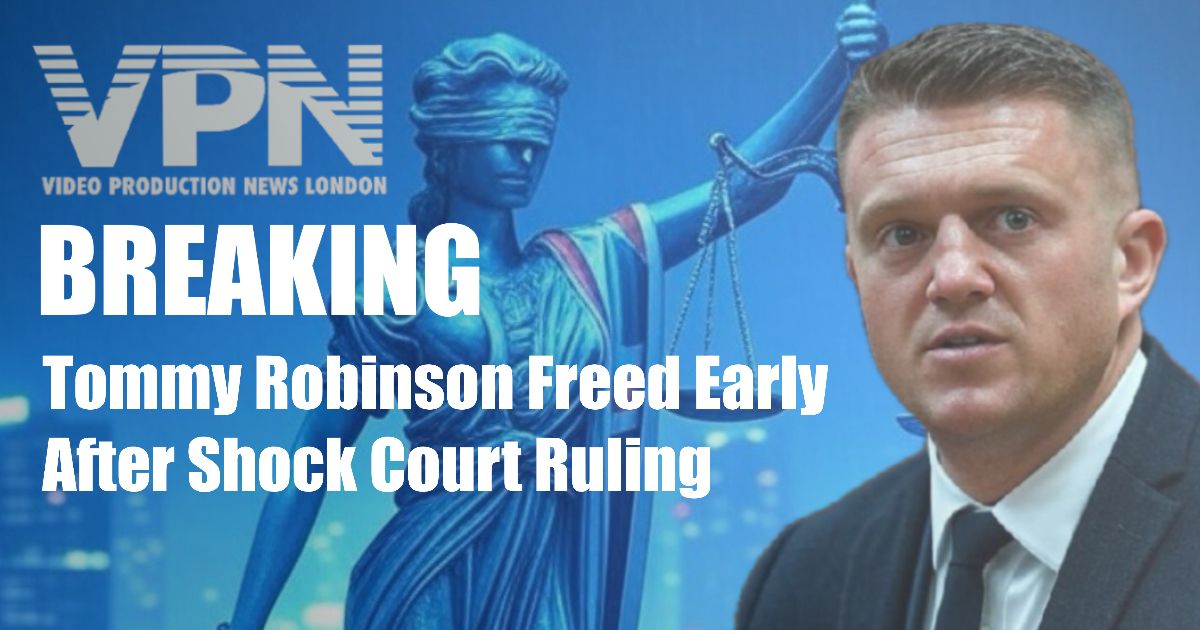Tommy Robinson Freed After Shock High Court Sentence U-Turn
Tommy Robinson walks free as High Court slashes sentence—find out how a last-minute legal twist turned the tide in one of Britain’s most explosive contempt cases.
Tommy Robinson is to be released from prison within days, following a decision by the High Court to reduce his 18-month custodial sentence for contempt of court by four months. The ruling was delivered after Robinson, whose real name is Stephen Yaxley-Lennon, applied to purge his contempt by demonstrating compliance with a long-standing High Court injunction. He had been jailed in October of last year for multiple admitted breaches of the 2021 injunction, which was issued after he lost a libel case brought by a Syrian refugee.
The sentence handed down in 2024 was composed of two elements: a 14-month punitive term and a four-month coercive element, the latter of which could be removed if Robinson took steps to comply with the original injunction.
That order, made by Mr Justice Nicklin, was issued after Robinson was found to have published false and defamatory allegations about Jamal Hijazi, a schoolboy who was filmed being assaulted in Huddersfield in 2018. The subsequent libel case resulted in a High Court ruling against Robinson, awarding Mr Hijazi £100,000 in damages, alongside legal costs. The injunction issued at that time prohibited Robinson from repeating the false allegations, including claims that Mr Hijazi had been involved in acts of violence.
The Solicitor General later issued two separate contempt proceedings against Robinson, alleging he had knowingly breached the terms of the injunction on ten occasions between early 2023 and mid-2023.
Among the breaches was the publication and promotion of a film entitled Silenced, which contained the same libellous allegations and remained pinned to the top of his X (formerly Twitter) profile.
Additional breaches included repeating the claims in multiple interviews and showing the film at a public demonstration in Trafalgar Square. Robinson admitted all ten breaches.
At sentencing, Mr Justice Johnson made it clear that the coercive part of the sentence could be lifted if Robinson demonstrated a genuine commitment to upholding the injunction. However, following his imprisonment, Robinson pursued further legal avenues, including a challenge to his segregation conditions in prison, which he lost in March. He later failed in an appeal against his sentence at the Court of Appeal in April, though the judges reiterated that the coercive element could still be removed if he took action to purge his contempt.
On Tuesday, Robinson applied to do exactly that. His counsel, Alex Di Francesco, informed the High Court that Robinson had removed all but two of the offending publications and was taking active steps to ensure their removal from the remaining locations. The court also heard that Robinson had given a formal assurance that he would not breach the injunction again, that he understood its terms, and that he recognised the legal consequences of any further violations.
Adam Payter, acting for the Solicitor General, confirmed that a review had been conducted into Robinson’s online presence, and that the government accepted that the vast majority of the offending content had now been removed. Although there was no expression of remorse or contrition from Robinson, the judge accepted that there had been what he described as a "change in attitude", sufficient to justify lifting the coercive portion of the sentence.
Delivering his ruling, Mr Justice Johnson stated that it was now appropriate to grant the application to purge the contempt, noting the practical effect of the ruling—subject to administrative confirmation—was that Robinson would be released shortly upon completion of the punitive part of his sentence. His official release date had previously been set for 26 July. That date will now be brought forward by approximately four weeks, with release expected within days.
Throughout the hearing, Robinson appeared via video link from HMP Woodhill in Milton Keynes. He showed no visible reaction as the judgment was delivered.
This latest decision marks a significant development in what has been a protracted and complex set of civil proceedings that have continued for more than five years. The original libel case, the resulting injunction, and the contempt proceedings that followed have all turned on Robinson’s publication of demonstrably false claims about Mr Hijazi. The courts have consistently ruled that such conduct must not be repeated, and have made clear that any future breach of the standing injunction could result in a prison sentence of up to two years.
Well, that’s all for now. But until our next article, please stay tuned, stay informed, but most of all stay safe, and I’ll see you then.




